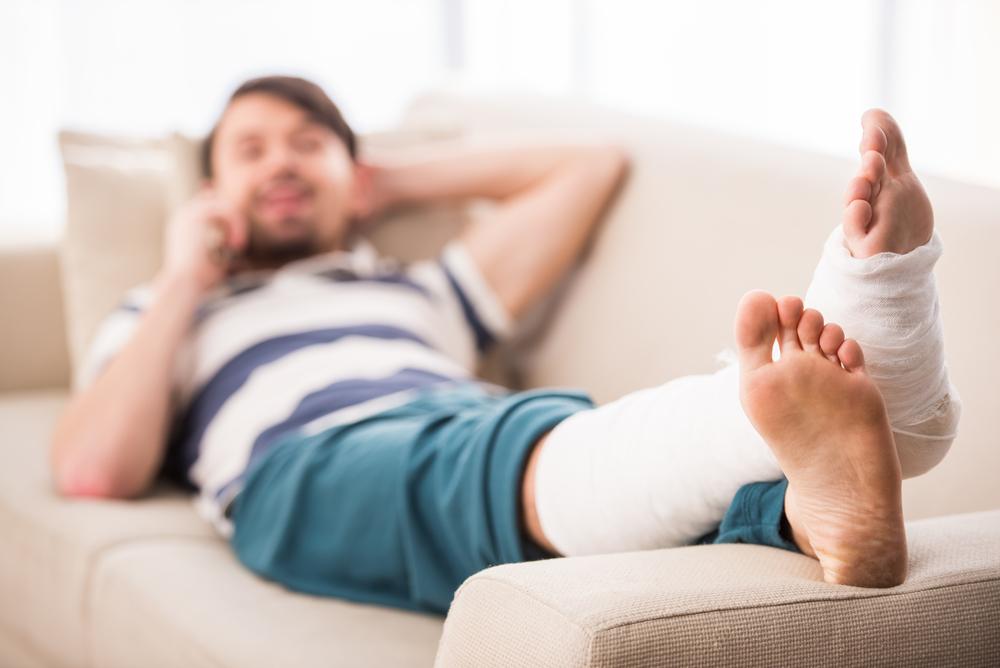How To Get Compensation After A Bicycle Accident

Only 1% of all trips in the US are made on bicycle. If you’re going to get around in the US, it’s more likely that you’d take a taxi or the bus or even roll out in style in your own ride. Bicycles ever hardly feature, if at all.
But for such a rarely used machine, the rate at which bicycles are involved in accidents is surprisingly high. A study by pedbikeinfo.org showed that more than 48,000 cyclists were injured in vehicle related accidents in 2013. In 2015, this number jumped to a whopping 467,000.
The unfortunate truth is: accidents can occur easily when bicycles are involved, especially when their owners have to venture out into urban roads.
But the good news is: if you have been involved in a bicycle accident negligently caused by someone else, you are entitled to compensation under the law. You can maintain an action against them for the damage they have caused to you.
However, getting compensation is not always easy because people would rather avoid having to pays thousands of dollars in compensation, even when they are at fault. Besides, the process is often tough and pretty drawn out.
So, after getting a lot of queries about how to go about obtaining compensation in bicycle accident claims, we decided to create this article just for you.
Now, just what kind of compensation are we looking at here?
Compensation After a Bicycle Accident
Compensation, in bicycle accident claims, is just a way of reimbursing you for the discomfort and loss you have to endure because of the default of the other party. Just as there are many things that can cause you discomfort and loss, there are also many heads of compensation that you can be entitled to in a bicycle accident claim.
They generally fall under two headings though. Compensation could either be for economic or non-economic loss.
Economic loss
Under this head of compensation, you are entitled to claim monetary damages for loss that has been caused to you. The compensation you can get here includes the following:
- Medical treatment, present and future
- Rehabilitation expenses
- Property damage
- Loss of earnings, present and future
- Alternative travel arrangements
Non-economic loss
There are other kinds of loss that cannot be properly quantified by money. This means you can’t really represent what you’re losing in terms of money but you would still be entitled to compensation because it’s no less a loss for that. You can claim compensation here for:
- Pain and suffering
- Depression
- Trauma
- Decline in productivity
What are your options for compensation?
From the off, there a number of potential avenues from which you can seek damages. Of course, your options may be limited by the circumstances of your case but you can generally look to any of these. They include:
Your own insurer
If you live in one of the no-fault states, your insurer would be the first port of call in the event of a bicycle accident. The no-fault system basically means that you can obtain compensation for damage done you through the accident, regardless of who caused it. So even if you were at fault for the accident, you can still get compensation.
The compensation provided you here would cover your medical expenses up to a reasonable amount. In most states, it does not extend to property damage though. You would usually have to purchase extra protection for that.
You also cannot claim compensation for other non-economic loss like pain and suffering or decline in productivity here. If you want that, you’d need to go through a lawsuit.
Someone else’s insurance
If you have been insured under another policy by a third party, you can also be entitled to claim compensation under that policy. It may be taken out by a family member, spouse or even your employer.
Those policies ordinarily cover Personal Injury Protection, including medical expenses to a reasonable extend and little more. If you are to have better coverage that includes rehabilitation and future medical expenses, they would need to have purchased a more comprehensive policy.
The other party’s insurer
This would be your first option if there’s no other policy to claim from. And it should well be, especially if the other party was at fault for the accident. Your chances of receiving compensation here would decrease with your level of fault in the accident though.
The amount of compensation you can also obtain here is limited to the kind of coverage the other party has and how much they are insured for. You generally cannot obtain a higher amount than they’re insured for.
If the insurance company decides to play hardball and refuse to pay you any compensation or up to the amount you should be entitled to (which they almost always do), you can utilize the next option.
Personal injury lawsuit
In the absence of insurance options or where the insurer rebuffs your claims, you can sue the insurer and the at-fault party for compensation. This lawsuit must be brought quickly though because the law specifies the period that you must file the lawsuit, usually within three years from the date of the accident.
Generally, you can claim compensation for any kind of loss in a personal injury lawsuit. You can claim for economic loss, including present and future medical expenses; and non-economic loss too. However, the success of your claim depends on how well you are able to prove your case in court.
The process of obtaining compensation
At the moment that the accident happens, compensation is probably the furthest thing from your mind but that’s the best time to start thinking about compensation. It’s actually a pretty simple process.
Collect necessary information
If you’re in a position to do so, try and obtain information from everyone present at the accident scene. This can help you understand the facts of the accident and build a story of what happened.
It is also useful to call the police so there can be an official report about the accident. This is especially necessary if there is significant property damage, serious bodily injury or death at the scene of the accident.
Exchange insurer and contact information with the other parties involved in the accident too. This will be very useful for when you have to start contacting their insurers to establish your claim for compensation.
Document everything
From your medical bills to the cost of alternative transportation, everything has to be documented. This helps establish your claim for reimbursement for any of those expenses you have incurred since the accident occurred.
Neither the insurer nor the court will be likely to provide compensation in the absence of clear evidence showing exactly what you spent.
It’s also important to write down everything you remember about the accident while the scene is still fresh in your memory. This can help you remember the little details that lend credibility to your story and make it harder to challenge.
Approach a good lawyer
This is pretty important too. If you have never had to process an insurance claim or negotiation before, it can be pretty easy to feel like you’re out of your depth. Having a lawyer along not only gives you confidence, but also strengthens your bargaining power.
If the case must go to court, you’ll be best served by having an experienced personal injury attorney represent you. This way, your chances of obtaining the compensation you deserve are much higher.
Conclusion
While there’s no single route to obtaining compensation, all routes have one thing in common: you need to be able to establish your claim properly in order to be successful. By implementing the information in this article, you’d be well on your way to doing just that.
If you’re wondering how all this applies to your peculiar case, please feel free to get in touch with our bicycle accident lawyers. We’d be delighted to help you figure out the details of your case.

Mr. Fine was born in New York, New York, and was raised in the northeast, where he studied sociology at Colby College in Waterville, Maine. He then graduated with honors from the University of Florida Levin College of Law in 1976. In law school, he was a member of Phi Kappa Phi Honor Society, was inducted into the Order of the Coif, and graduated in the top 10 percent of his class. Mr. Fine was admitted into the Florida Bar in 1976, the United States District Court for the Middle District of Florida in 1977, the United States District Court for the Northern District of Florida in 1991, and the United States Court of Appeals 11th Circuit in 1982.